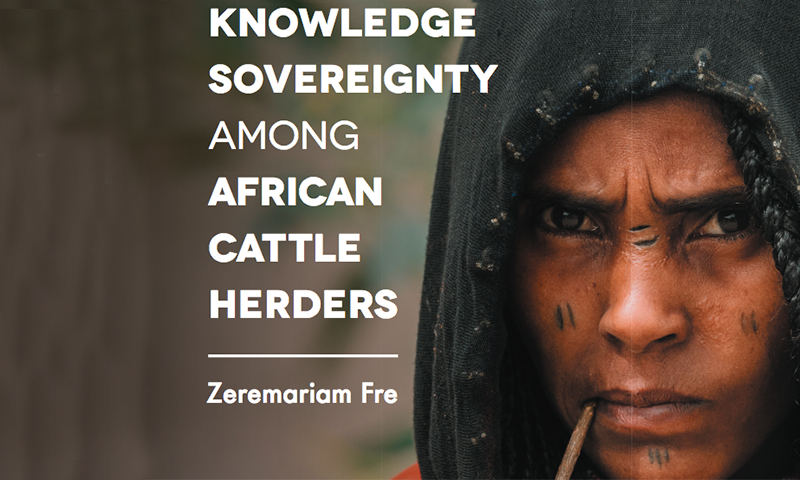Knowledge Sovereignty Among African Cattle Herders

21 June 2018
Beni-Amer cattle owners in the western part of the Horn of Africa are not only masters in cattle breeding, they are also knowledge sovereign, in terms of owning productive genes of cattle and the cognitive knowledge base crucial to sustainable development. The strong bonds between the Beni-Amer, their animals, and their environment constitute the basis of their ways of knowing, and much of their knowledge system is built on experience and embedded in their cultural practices.
In this book, the first to study Beni-Amer practices, Zeremariam Fre argues for the importance of their knowledge, challenging the preconceptions that regard it as untrustworthy when compared to scientific knowledge from more developed regions. Empirical evidence suggests that there is much one could learn from the other, since elements of pastoralist technology, such as those related to animal production and husbandry, make a direct contribution to our knowledge of livestock production. It is this potential for hybridization, as well as the resilience of the herders, at the core of the indigenous knowledge system.
Fre also argues that indigenous knowledge can be viewed as a stand-alone science, and that a community’s rights over ownership should be defended by government officials, development planners and policy makers, making the case for a celebration of the knowledge sovereignty of pastoralist communities.
About the author
Zeremariam Fre is the founding director and former head of regional NGO, the Pastoral and Environmental Network in the Horn of Africa (PENHA). He currently works at the Bartlett Development Planning Unit at UCL as a teaching fellow and course tutor. His research and teaching are inspired by his work experience in development planning, dry land agriculture, land use policy, food security, peri-urban agriculture, indigenous knowledge systems, the role of women in food production, NGOs and social movements.
The book is available for free download through UCL Press
 Close
Close

